Top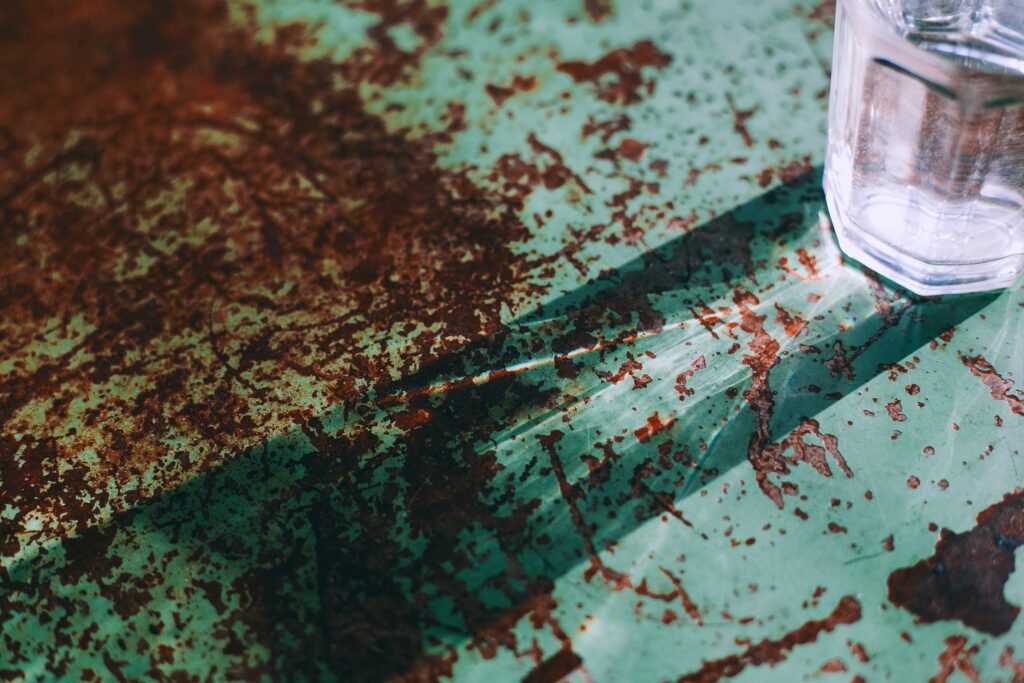
How to Pressure Wash a House
One of the most useful time-saving tools to emerge in recent years is a pressure washer. Cleans dirt, grime, and chalking paint from otherwise sound painted surfaces with its high-velocity water spray. Pressure washers are popular among professionals not just because they are quick but also because they scrub the old paint, allowing the fresh coat to adhere better.
How to Pressure Wash a House
A pressure washer is especially good at removing dirt, grime, and chalking, the powdered pigment left on the surface when old oil and latex paints degrade. You won’t need a cleanser (non-phosphate substitute or TSP) since the scouring action is vigorous.
Before pressure washing, check first for chalking by rubbing your hand on the painted surface. After that, you must repair such as replacing rotten boards and renailing loose ones so that water doesn’t drive through the wall and siding.
Pressure Washing Techniques
Practice first.
First, practice using the washer in a low area. Hold the wand in both hands and move it from side to side across the siding at a steady pace. Start approximately 2 feet away from the siding and work your way closer until you find the best cleaning distance. In general, work at a slightly downward angle to prevent pushing water up under the siding.
Work your way down from the top.
Initiate from the top and work your way down the walls. Wash the gutters, soffits, and siding as well. When possible, keep the spray away from breakable things like windows and exterior lights, and remove house numbers and window boxes.
After washing, scrape.
Pressure washers can help remove loose paint, but they can’t replace scraping. After pressure washing the area, scrape off any remaining loose paint.
Direct the nozzle away from windows.
Avoid driving water into joints, gaps, or against the glass by directing the nozzle away from windows and holding the wand at an angle. Even so, inspect the inside sill for any water that has spilled. After washing, remove the shutters and clean underneath.
Use an extension wand.
To wash high areas, use an adjustable extension wand. It is safer than pressure washing on a ladder.
Scrub the inaccessible areas.
With a scrub brush and a combination of TSP and detergent mixed in water, clean the high areas beyond the pressure washer extension. So that the TSP won’t leave noticeable drip marks on the siding, keep it damp. When finished, use a garden hose to rinse from the top down.
Other Tips on How to Pressure Wash a House
- While it is preferable to wash with the wand pointing downward, you may need to tip it upward at times, especially beneath soffits.
- We don’t suggest pressure-washing while standing on a ladder since the pressure’s rebound might knock you off balance.
- Steer clear of electrical equipment such as lights and outlets. It is easy to cause a short circuit or break them.
 When to Hire a Pro
When to Hire a Pro
If you like instant gratification for cleaning and house maintenance, pressure washing might be fulfilling for you. On the other hand, you could decide that pressure washing is too much hassle. And that’s OK! It’s a nasty task, and you’ll almost certainly end up soaked.
Contact a professional specialist for assistance if you’d rather have someone else do the pressure washing. With a bit of elbow grease and water, your house will be clean outside, just like inside.
 Call Now
Call Nowpressure, roof, mildew, driveway, sidewalk, patio, vinyl siding, dirt, nozzle, garden hose, customer, hose, wood, request a quote, residential power washing near me, mold, spray, stain, window cleaner, concrete, cleaner, wand, detergent, price, soap, environmentally friendly, porch, tile, cost, mud, stucco, home improvement, concrete pressure washing, soft washing services, pressure washing services, residential pressure washing, pressure washing company, pressure washing service, soft washing service, power washing services, cleaning services, nyc power wash, cost to pressure wash driveway, residential power washing services near me, house washing companies near me, best residential power washer, top rated residential power washers, residential power washing, residential power washing services, debris, fence, spray nozzle, brush, machine, deck, house power washing near me, home power washing near me, pressure wash house near me, wall, sprayer, plastic, ladder, floor, angle, lead paint, mortar, siding, lawn mower, dust, power wash house, house washing near me, pressure wash house, power wash house cost, house washing cost, exterior house cleaning near me, house washing service, house washing, house washing services near me, power wash my house, pressure wash my house, exterior house cleaning services near me, average cost to pressure wash a house, power wash your house, power washing vinyl siding, pressure wash your house, average cost to pressure wash a driveway, roof cleaning services near me, carpet, caulk, exterior house cleaning, house washing services, exterior house washing
Frequently Asked Questions
Can I pressure wash my house in the winter?
Pressure washing your house in the winter is possible, but it's important to consider the temperature and conditions. Ensure the temperature is above freezing to prevent water from freezing on surfaces, which can cause damage.
What is the cost of power washing a house?
The cost of power washing a house typically ranges from $200 to $400, depending on factors such as the size of the home, the type of surfaces being cleaned, and the level of dirt or grime.
How do I prepare my home for pressure washing?
Preparing your home for pressure washing involves clearing the area of furniture, decorations, and plants, covering windows and doors to prevent water intrusion, and ensuring that all electrical outlets and fixtures are protected from water exposure.
How often should I power wash my house?
The frequency of power washing your house depends on various factors, but generally, it is recommended to power wash every 1 to 2 years to maintain its appearance and prevent buildup of dirt, mold, and mildew.
Is power washing the same as pressure washing?
Power washing and pressure washing are often considered the same, but the main difference lies in the water temperature used. Power washing uses heated water, while pressure washing relies solely on high-pressure water.
What are the benefits of pressure washing a house?
The benefits of pressure washing a house include enhancing curb appeal, removing dirt and grime, preventing mold growth, and extending the lifespan of exterior surfaces. This effective cleaning method rejuvenates your home’s appearance while promoting a healthier environment.
What is residential pressure washing and its benefits?
Residential pressure washing is a cleaning method that uses high-pressure water spray to remove dirt, grime, mold, and other debris from surfaces like siding, driveways, and patios. Its benefits include enhancing curb appeal, preventing damage, and promoting a healthier living environment.
How much pressure is needed to power wash a house?
The pressure needed to power wash a house typically ranges from 1,500 to 3,000 PSI, depending on the surface being cleaned. For delicate materials, such as wood, lower pressure is advisable, while tougher surfaces may require higher settings.
Should I hire a professional to pressure wash my house?
Hiring a professional to pressure wash your house can ensure thorough cleaning, safety, and efficiency, especially for tough stains or high areas. If you're unsure or lack the right equipment, it’s wise to seek expert help.
Can I pressure wash my house vinyl siding?
You can pressure wash your house's vinyl siding. This method effectively removes dirt and grime, enhancing your home's appearance. Just ensure to use the appropriate pressure setting and cleaning solution to avoid damaging the siding.
How do I prepare my house for pressure washing?
Preparing your house for pressure washing involves several key steps: clear the area of furniture and decor, cover windows and electrical outlets, and ensure plants and landscaping are protected. This will help achieve optimal cleaning results.
How often should I pressure wash my house exterior?
The frequency of pressure washing your house exterior depends on various factors. Generally, it's recommended to pressure wash every 1 to 2 years to maintain cleanliness and prevent mold or mildew buildup.
Can power washing remove mildew from a house?
Power washing can effectively remove mildew from a house. The high-pressure water stream dislodges mildew and other contaminants, restoring your home's exterior and enhancing its appearance.
What is the best way to power wash a house with vinyl siding?
The best way to power wash a house with vinyl siding is to use a pressure washer with a low-pressure setting, applying a mild detergent, and rinsing from the top down to avoid streaks. Always maintain a safe distance to prevent damage.
What is the recommended pressure washer psi for house siding?
The recommended pressure washer psi for house siding is typically between 1,200 and 2,500 psi. This range effectively cleans without damaging the siding material, ensuring a thorough and safe wash.
What is the best cleaning solution for pressure washing houses?
The best cleaning solution for pressure washing houses is typically a mixture of water and a specialized detergent designed for pressure washers. This combination effectively removes dirt, mold, and mildew, ensuring a thorough clean without damaging surfaces.
Can I power wash my houses roof?
Power washing your house's roof is possible, but it requires caution. High pressure can damage shingles or tiles, so it's best to use a lower pressure setting or hire a professional for safe and effective cleaning.
Can I pressure wash my deck or patio?
You can pressure wash your deck or patio. This method effectively removes dirt, grime, and mildew, restoring the surface's appearance. However, be cautious with the pressure settings to avoid damaging the material.
Can power washing damage my houses exterior paint?
Power washing can potentially damage your house's exterior paint if not done correctly. Using excessive pressure or the wrong nozzle can strip paint or cause chipping, so it's essential to use appropriate techniques and equipment.
Is power washing a house a DIY task?
Power washing a house can be a DIY task, but it requires proper knowledge, equipment, and safety precautions. Homeowners should assess their skill level and consider hiring professionals for large or complex jobs to ensure effective and safe cleaning.
Can I pressure wash my roof safely?
Pressure washing your roof can be done safely, but it requires caution. Use a low-pressure setting and appropriate nozzle to avoid damaging shingles, and consider hiring a professional if you're unsure about the process or safety precautions.
What temperature is safe for winter pressure washing?
The safe temperature for winter pressure washing is generally above 32°F (0°C). This helps prevent water from freezing on surfaces, ensuring effective cleaning and minimizing the risk of damage to your home.
How can I estimate power washing costs?
Estimating power washing costs involves considering factors such as the size of the area to be cleaned, the type of surfaces, and any additional services required. It's beneficial to obtain quotes from multiple professionals for accurate pricing.
What steps are needed for home preparation?
The steps needed for home preparation include clearing the area around your house, covering plants and outdoor furniture, and ensuring windows and doors are closed to protect against water damage during pressure washing.
How frequently should I power wash my home?
The frequency of power washing your home depends on various factors, but generally, it's advisable to do so once a year to maintain its appearance and prevent buildup of dirt and mildew.
Are pressure washing and power washing interchangeable terms?
Pressure washing and power washing are not interchangeable terms. While both methods use high-pressure water to clean surfaces, power washing utilizes heated water, making it more effective for tougher grime and stains.
What advantages does pressure washing offer homeowners?
The advantages of pressure washing for homeowners include enhanced curb appeal, prevention of damage from mold and mildew, and increased property value. This efficient cleaning method revitalizes surfaces, making homes look well-maintained and inviting.
What defines residential pressure washing services?
Residential pressure washing services are defined by their focus on cleaning exterior surfaces of homes, such as driveways, patios, siding, and roofs, using high-pressure water spray to remove dirt, grime, mold, and mildew effectively.
How much psi is ideal for house washing?
The ideal PSI for house washing typically ranges from 1,200 to 2,500 PSI. This pressure effectively removes dirt and grime without damaging surfaces, making it suitable for most residential exteriors.
When is it best to hire a pressure washing service?
The best time to hire a pressure washing service is when you need thorough cleaning for large areas, have tough stains, or lack the equipment and expertise to do it safely and effectively.
how to pressure wash a house, residential pressure washing, pressure wash house
pressure, roof, mildew, driveway, sidewalk, patio, vinyl siding, dirt, nozzle, garden hose, customer, hose, wood, request a quote, residential power washing near me, mold, spray, stain, window cleaner, concrete, cleaner, wand, detergent, price, soap, environmentally friendly, porch, tile, cost, mud, stucco, home improvement, concrete pressure washing, soft washing services, pressure washing services, residential pressure washing, pressure washing company, pressure washing service, soft washing service, power washing services, cleaning services, nyc power wash, cost to pressure wash driveway, residential power washing services near me, house washing companies near me, best residential power washer, top rated residential power washers, residential power washing, residential power washing services, debris, fence, spray nozzle, brush, machine, deck, house power washing near me, home power washing near me, pressure wash house near me, wall, sprayer, plastic, ladder, floor, angle, lead paint, mortar, siding, lawn mower, dust, power wash house, house washing near me, pressure wash house, power wash house cost, house washing cost, exterior house cleaning near me, house washing service, house washing, house washing services near me, power wash my house, pressure wash my house, exterior house cleaning services near me, average cost to pressure wash a house, power wash your house, power washing vinyl siding, pressure wash your house, average cost to pressure wash a driveway, roof cleaning services near me, carpet, caulk, exterior house cleaning, house washing services, exterior house washing
Frequently Asked Questions
Can I pressure wash my house in the winter?
Pressure washing your house in the winter is possible, but it's important to consider the temperature and conditions. Ensure the temperature is above freezing to prevent water from freezing on surfaces, which can cause damage.
What is the cost of power washing a house?
The cost of power washing a house typically ranges from 0 to 0, depending on factors such as the size of the home, the type of surfaces being cleaned, and the level of dirt or grime.
How do I prepare my home for pressure washing?
Preparing your home for pressure washing involves clearing the area of furniture, decorations, and plants, covering windows and doors to prevent water intrusion, and ensuring that all electrical outlets and fixtures are protected from water exposure.
How often should I power wash my house?
The frequency of power washing your house depends on various factors, but generally, it is recommended to power wash every 1 to 2 years to maintain its appearance and prevent buildup of dirt, mold, and mildew.
Is power washing the same as pressure washing?
Power washing and pressure washing are often considered the same, but the main difference lies in the water temperature used. Power washing uses heated water, while pressure washing relies solely on high-pressure water.
What are the benefits of pressure washing a house?
The benefits of pressure washing a house include enhancing curb appeal, removing dirt and grime, preventing mold growth, and extending the lifespan of exterior surfaces. This effective cleaning method rejuvenates your home’s appearance while promoting a healthier environment.
What is residential pressure washing and its benefits?
Residential pressure washing is a cleaning method that uses high-pressure water spray to remove dirt, grime, mold, and other debris from surfaces like siding, driveways, and patios. Its benefits include enhancing curb appeal, preventing damage, and promoting a healthier living environment.
How much pressure is needed to power wash a house?
The pressure needed to power wash a house typically ranges from 1,500 to 3,000 PSI, depending on the surface being cleaned. For delicate materials, such as wood, lower pressure is advisable, while tougher surfaces may require higher settings.
Should I hire a professional to pressure wash my house?
Hiring a professional to pressure wash your house can ensure thorough cleaning, safety, and efficiency, especially for tough stains or high areas. If you're unsure or lack the right equipment, it’s wise to seek expert help.
Can I pressure wash my house vinyl siding?
You can pressure wash your house's vinyl siding. This method effectively removes dirt and grime, enhancing your home's appearance. Just ensure to use the appropriate pressure setting and cleaning solution to avoid damaging the siding.
How do I prepare my house for pressure washing?
Preparing your house for pressure washing involves several key steps: clear the area of furniture and decor, cover windows and electrical outlets, and ensure plants and landscaping are protected. This will help achieve optimal cleaning results.
How often should I pressure wash my house exterior?
The frequency of pressure washing your house exterior depends on various factors. Generally, it's recommended to pressure wash every 1 to 2 years to maintain cleanliness and prevent mold or mildew buildup.
Can power washing remove mildew from a house?
Power washing can effectively remove mildew from a house. The high-pressure water stream dislodges mildew and other contaminants, restoring your home's exterior and enhancing its appearance.
What is the best way to power wash a house with vinyl siding?
The best way to power wash a house with vinyl siding is to use a pressure washer with a low-pressure setting, applying a mild detergent, and rinsing from the top down to avoid streaks. Always maintain a safe distance to prevent damage.
What is the recommended pressure washer psi for house siding?
The recommended pressure washer psi for house siding is typically between 1,200 and 2,500 psi. This range effectively cleans without damaging the siding material, ensuring a thorough and safe wash.
What is the best cleaning solution for pressure washing houses?
The best cleaning solution for pressure washing houses is typically a mixture of water and a specialized detergent designed for pressure washers. This combination effectively removes dirt, mold, and mildew, ensuring a thorough clean without damaging surfaces.
Can I power wash my houses roof?
Power washing your house's roof is possible, but it requires caution. High pressure can damage shingles or tiles, so it's best to use a lower pressure setting or hire a professional for safe and effective cleaning.
Can I pressure wash my deck or patio?
You can pressure wash your deck or patio. This method effectively removes dirt, grime, and mildew, restoring the surface's appearance. However, be cautious with the pressure settings to avoid damaging the material.
Can power washing damage my houses exterior paint?
Power washing can potentially damage your house's exterior paint if not done correctly. Using excessive pressure or the wrong nozzle can strip paint or cause chipping, so it's essential to use appropriate techniques and equipment.
Is power washing a house a DIY task?
Power washing a house can be a DIY task, but it requires proper knowledge, equipment, and safety precautions. Homeowners should assess their skill level and consider hiring professionals for large or complex jobs to ensure effective and safe cleaning.
Can I pressure wash my roof safely?
Pressure washing your roof can be done safely, but it requires caution. Use a low-pressure setting and appropriate nozzle to avoid damaging shingles, and consider hiring a professional if you're unsure about the process or safety precautions.
What temperature is safe for winter pressure washing?
The safe temperature for winter pressure washing is generally above 32°F (0°C). This helps prevent water from freezing on surfaces, ensuring effective cleaning and minimizing the risk of damage to your home.
How can I estimate power washing costs?
Estimating power washing costs involves considering factors such as the size of the area to be cleaned, the type of surfaces, and any additional services required. It's beneficial to obtain quotes from multiple professionals for accurate pricing.
What steps are needed for home preparation?
The steps needed for home preparation include clearing the area around your house, covering plants and outdoor furniture, and ensuring windows and doors are closed to protect against water damage during pressure washing.
How frequently should I power wash my home?
The frequency of power washing your home depends on various factors, but generally, it's advisable to do so once a year to maintain its appearance and prevent buildup of dirt and mildew.
Are pressure washing and power washing interchangeable terms?
Pressure washing and power washing are not interchangeable terms. While both methods use high-pressure water to clean surfaces, power washing utilizes heated water, making it more effective for tougher grime and stains.
What advantages does pressure washing offer homeowners?
The advantages of pressure washing for homeowners include enhanced curb appeal, prevention of damage from mold and mildew, and increased property value. This efficient cleaning method revitalizes surfaces, making homes look well-maintained and inviting.
What defines residential pressure washing services?
Residential pressure washing services are defined by their focus on cleaning exterior surfaces of homes, such as driveways, patios, siding, and roofs, using high-pressure water spray to remove dirt, grime, mold, and mildew effectively.
How much psi is ideal for house washing?
The ideal PSI for house washing typically ranges from 1,200 to 2,500 PSI. This pressure effectively removes dirt and grime without damaging surfaces, making it suitable for most residential exteriors.
When is it best to hire a pressure washing service?
The best time to hire a pressure washing service is when you need thorough cleaning for large areas, have tough stains, or lack the equipment and expertise to do it safely and effectively.
how to pressure wash a house, residential pressure washing, pressure wash house

 When to Hire a Pro
When to Hire a Pro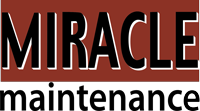
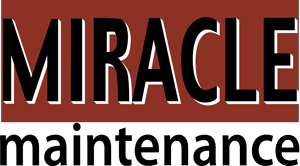
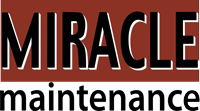





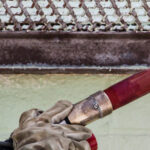
No Comments
Sorry, the comment form is closed at this time.